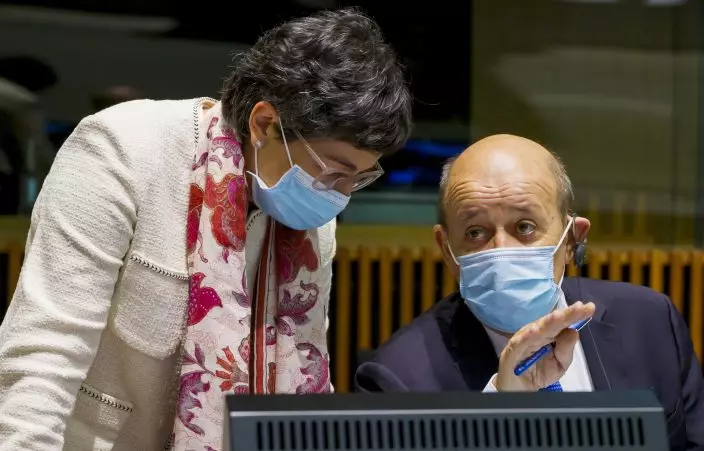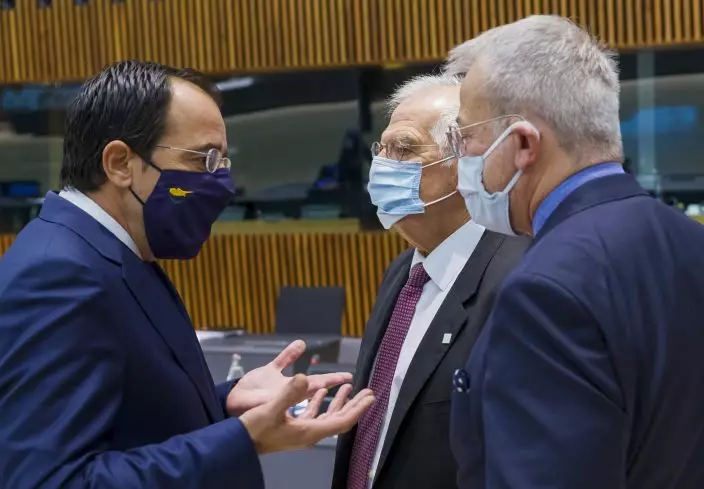The European Union warned Monday that it would slap sanctions on Belarus President Alexander Lukashenko and other Belarus officials if he fails to enter into talks with the opposition and order an end to the crackdown on protesters launched after a disputed election in August.
Earlier this month, EU leaders imposed sanctions on 40 officials in Belarus that the bloc believes are responsible for violence against peaceful demonstrators, opposition members and reporters, as well as “misconduct” during the presidential election. Belarusian election officials say the Aug. 9 vote returned Lukashenko to power for a sixth term but opposition members and some poll workers say it was riddled with fraud.
In Luxembourg on Monday, EU foreign ministers said observer accounts suggest the electoral process broke Belarus law and reneged on its international commitments. They said in a statement that “Lukashenko lacks any democratic legitimacy” and they backed local calls for a new election.

French Foreign Minister Jean-Yves Le Drian, right, speaks with Spain's Foreign Minister Arancha Gonzalez Laya during a meeting of European Union foreign ministers at the European Council building in Luxembourg, Monday, Oct. 12, 2020. European Union foreign ministers were weighing Monday whether to impose sanctions on Russian officials and organizations blamed for the poisoning of opposition leader Alexei Navalny with a Soviet-era nerve agent. (Jean-Christophe Verhaegen, Pool via AP)
The ministers said “the EU stands ready to take further restrictive measures, including against entities and high-ranking officials, including A. Lukashenko.”
“The EU calls on the Belarusian authorities to seek a peaceful and democratic solution to the crisis through an inclusive national dialogue with broader society,” they said, and backed a plan by the Organization for Security and Cooperation in Europe to help set up such talks.
Over the weekend, tens of thousands of protesters rallied in the Belarusian capital of Minsk for the 10th consecutive Sunday, part of daily protests demanding the resignation of Lukashenko, who has run the country with an iron fist for 26 years.

Cypriot Foreign Minister Nicos Christodoulides, left, speaks with European Union foreign policy chief Josep Borrell, second right, during a meeting of European Union foreign ministers at the European Council building in Luxembourg, Monday, Oct. 12, 2020. European Union foreign ministers were weighing Monday whether to impose sanctions on Russian officials and organizations blamed for the poisoning of opposition leader Alexei Navalny with a Soviet-era nerve agent. (Jean-Christophe Verhaegen, Pool via AP)
The Viasna human rights center estimated that around 100,000 people took part in the protest, which police tried to disperse with water cannons, stun grenades and truncheons. It said dozens of protesters were injured.
Mass anti-government protests have rocked Belarus for over two months.
Follow all AP stories on developments in Belarus at https://apnews.com/Belarus.


